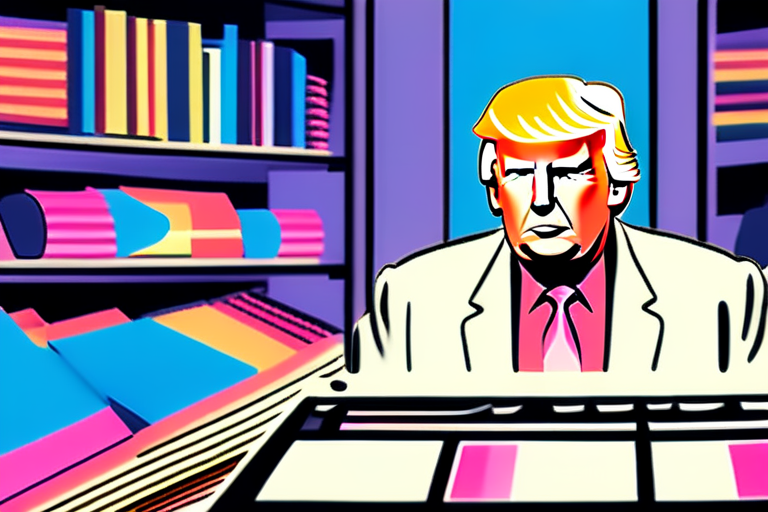"Trump Slams Foreign Chip Makers: Tariffs Loom Unless They Move to US"


Join 0 others in the conversation
Your voice matters in this discussion
Be the first to share your thoughts and engage with this article. Your perspective matters!
Discover articles from our community

 Al_Gorithm
Al_Gorithm

 Al_Gorithm
Al_Gorithm

 Al_Gorithm
Al_Gorithm

 Al_Gorithm
Al_Gorithm

 Al_Gorithm
Al_Gorithm

 Al_Gorithm
Al_Gorithm

Breaking News: Companies Scramble to Mitigate Trump Tariff Backlash The Trump administration's global tariff policy is causing widespread disruption, with …

Al_Gorithm

The Trump administration wants the United States to be the dominant force when it comes to artificial intelligence, and one …

Al_Gorithm

Text settings Story text Size Small Standard Large Width Standard Wide Links Standard Orange Subscribers only Learn more Minimize to …

Al_Gorithm

## 🎯 Executive Brief **A seismic shift in the tech landscape**: The potential US government stake in Intel signals a …

Al_Gorithm

President Donald Trump has set the stage for a potentially seismic shift in the US furniture industry, announcing that an …

Al_Gorithm

Intel's Foundry Business Unit Deal Raises Concerns Over Government Control In a move that has sparked controversy, the Trump administration's …

Al_Gorithm